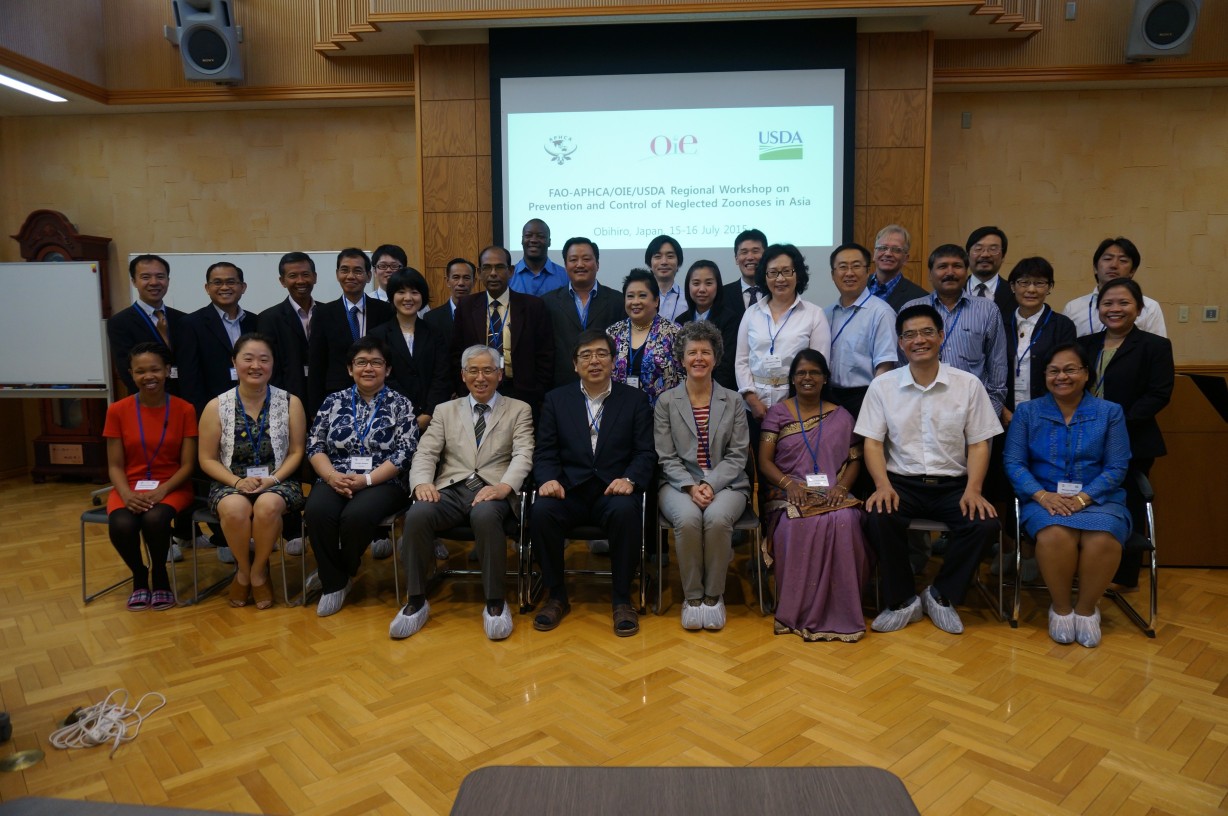The OIE RRAP and the FAO-APHCA with the support of USDA-APHIS, jointly organised the “Regional Workshop on Prevention and Control of Neglected Zoonoses in Asia” in Obihiro, Japan on 15-16 July 2015; providing participants with 1) updates on the situation and the burden of neglected zoonoses in Asia, 2) overview of relevant OIE standards in controlling those diseases, 3) opportunities to share experiences and learn from each other, and 4) support by international/regional organisations to national control programmes addressing neglected zoonoses, particularly brucellosis.
The meeting was attended by 30 participants from 13 countries including country participants, observers and experts. The overview on zoonotic diseases indicated that a number of neglected zoonotic diseases are widespread in the Asia region and some countries have prioritised the control of Neglected Zoonotic Diseases (NZDs) such as anthrax, tuberculosis, salmonellosis, brucellosis, leptospirosis and food borne parasites. It was agreed that it is imperative to address NZDs by targeting the animal reservoir in order to improve animal health and reduce the risk of infection of humans, as well as improving livelihoods. Some selected countries had opportunities to better illustrate the NZD status as well as the brucellosis situations in their countries.
The way forward for NZD control was discussed and it was agreed that: 1) countries identified a set criteria for prioritising NZDs and agreed these criteria should be discussed with relevant stakeholders in order to develop a prioritised list of NZD requiring control; 2) countries and development partners should promote and implement the application of One Health approach for NZD control; 3) development of a brucellosis control and eradication strategy must be pursued and implemented; and 4) development partners should as much as possible provide avenues for countries to continually discuss challenges and solutions to the control of NZDs.
The workshop was completed successfully with fruitful discussions and the development of recommendations. Attendees indicated their appreciation at having the opportunity to participate in this meeting. The group size was good and allowed most of participating countries to make a presentation and share their country experience.
